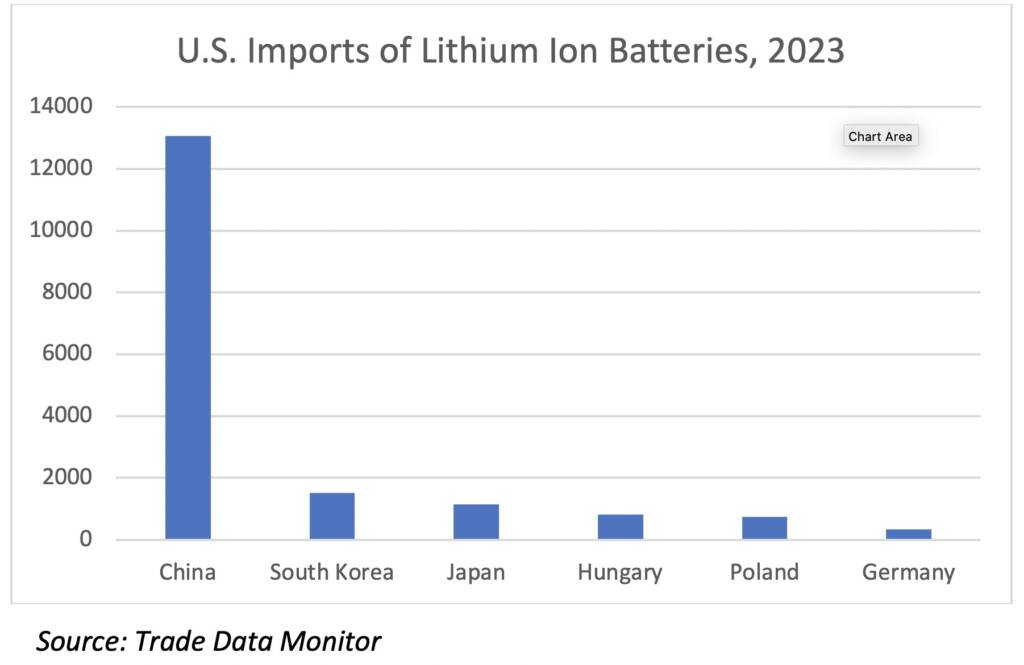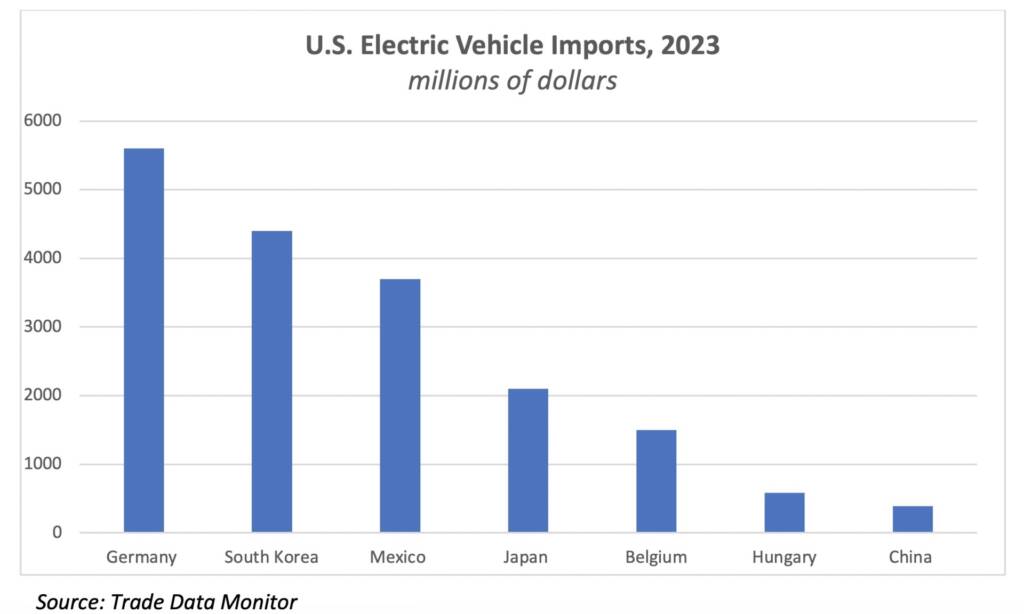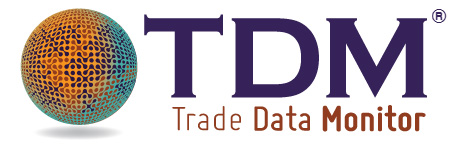As the world’s top source of monthly trade statistics for governments, corporations, NGOs, law firms, and international institutions, Trade Data Monitor carefully tracks shifts in trade terms. At the top of the list is tariffs, and we’ll be monitoring how new import tariffs are changing trade flows.
New U.S. Tariffs
On May 14, the U.S. announced new tariffs on $18 billion worth of imports of goods from China. The rates cover 14 categories of goods, including semiconductors, electric vehicles, facemasks, steel and aluminum products, syringes and needles, and other products.
The tariff on electric vehicles is rising to 100% from 25%. The rate on steel and aluminum products is increasing to 25% from 7.5%. The duty on solar cells is going up to 50% from 25%. A new tariff on shipping cranes will be 25%. As it has in the past, Trade Data Monitor will track and monitor all new tariffs, and integrate the facility to look up trade flows related to tariffs.
Lithium-Ion Batteries
According to the White House, the tariff rate on lithium-ion EV batteries will increase from 7.5%% to 25% in 2024, while the tariff rate on lithium-ion non-EV batteries will increase from 7.5% to 25% in 2026. The tariff rate on battery parts will increase from 7.5% to 25% in 2024. China is by far the U.S.’s top supplier of lithium-ion batteries to the U.S. The U.S. imported $13.1 billion worth in 2023, almost 10 times the amount of the number two supplier, South Korea.

Where else could the U.S. source batteries from? Twelve countries exported over $1 billion worth of lithium-ion batteries in 2023, according to Trade Data Monitor. China ($65 billion) was the world’s top supplier, followed by Poland ($11.8 billion), Hungary ($10.2 billion), South Korea ($7.3 billion), and Germany ($6.1 billion).
China is Not Top EV Source to U.S.
By comparison, China is only the seventh’s biggest supplier of electric vehicles to the U.S. The U.S. imported $387.7 million worth of electric vehicles from China in 2023. The country was only its seventh biggest supplier, after Germany ($5.6 billion), South Korea ($4.4 billion), Mexico ($3.7 billion), Japan ($2.1 billion), Belgium ($1.5 billion), and Hungary ($581.4 million).

In imposing the tariffs, U.S. trade representative Katherine Tai said the U.S. goal was “the elimination of the People’s Republic of China’s unfair technology transfer-related policies and practices that continue to burden U.S. commerce and harm American workers and businesses.” Chinese officials said they oppose the tariffs, which they believe are driven by U.S. politics, and will take “resolute measures to defend its own interests.”


